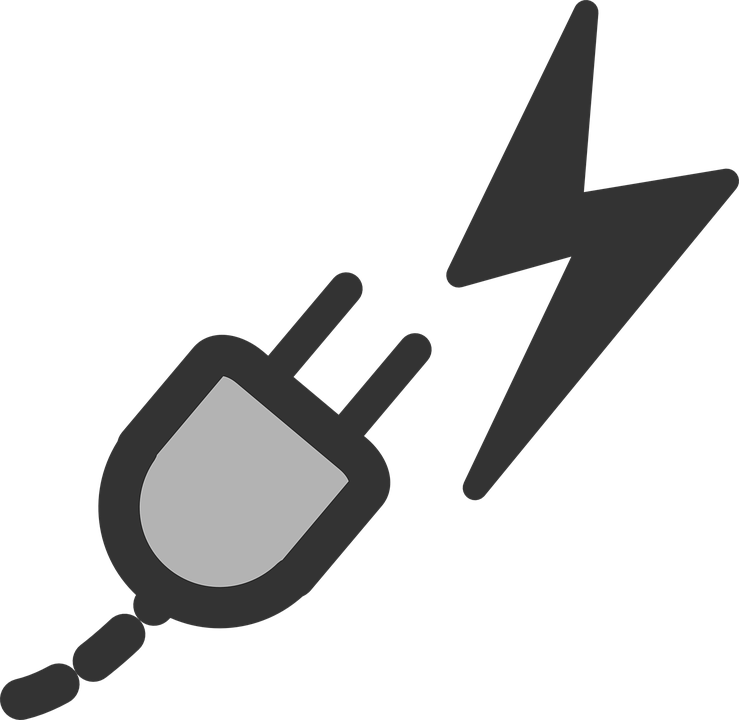Have you noticed that there are more and more electric vehicle charging stations strewn around the city? According to a recent study from Statistics Canada, zero emission vehicles accounted for 8.4% of all new vehicle registrations in BC, which is a 7.8% increase from the previous year. Given that electric vehicle sales are steadily increasing in the Lower Mainland, here is some useful information for you to have about the costs of electric vehicle charging. If you are considering getting an EV charger installed and have questions pertaining specifically to your home and your needs, feel free to call Milani Electric for one of our experts’ opinion.
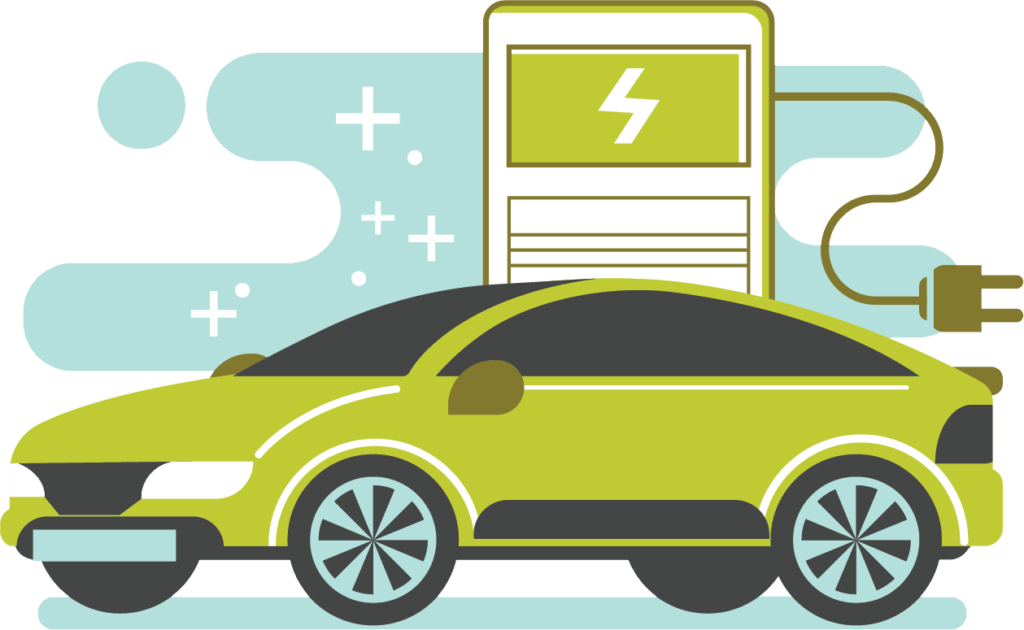
The 3 Levels of EV Charging
In order to charge your electric vehicle, you must have access to an electrical system. There are 3 levels of EV charging, with the first two being the most common in homes.
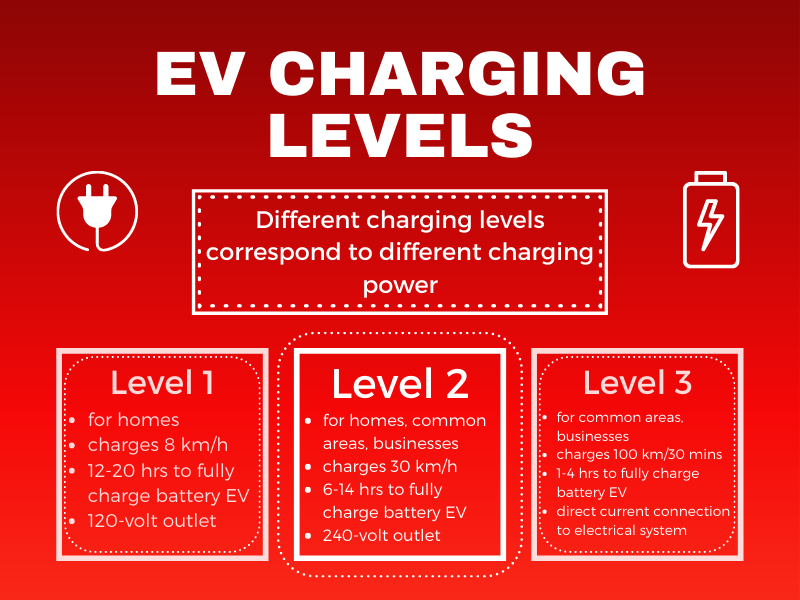
Level 1
- Typically used in homes
- Uses a connection to a standard 120-volt outlet
- Charges 8 km/hour
- Takes 12-20 hours to fully charge a battery EV and 6-12 hours for a plug-in hybrid
Level 2
- Typically used in homes, common areas, and businesses
- Uses a connection to a 240-volt outlet, like those used by ovens and clothes dryers
- Charges 30 km/hour
- Takes 6-14 hours to fully charge a battery EV and 4-8 hours for a plug-in hybrid
Level 3
- Typically used in common areas and businesses
- Uses a direct current connection to an electrical system
- Charges 100 km/30 minutes or 80% charge at 50 kW (varies by vehicle type)
- Takes 1-4 hours to fully charge a battery EV and 15 minutes-3 hours for a plug-in hybrid
Home EV Charger Features
Unsure of what charger is right for your vehicle? Consider the following features corresponding to your vehicle and your space.
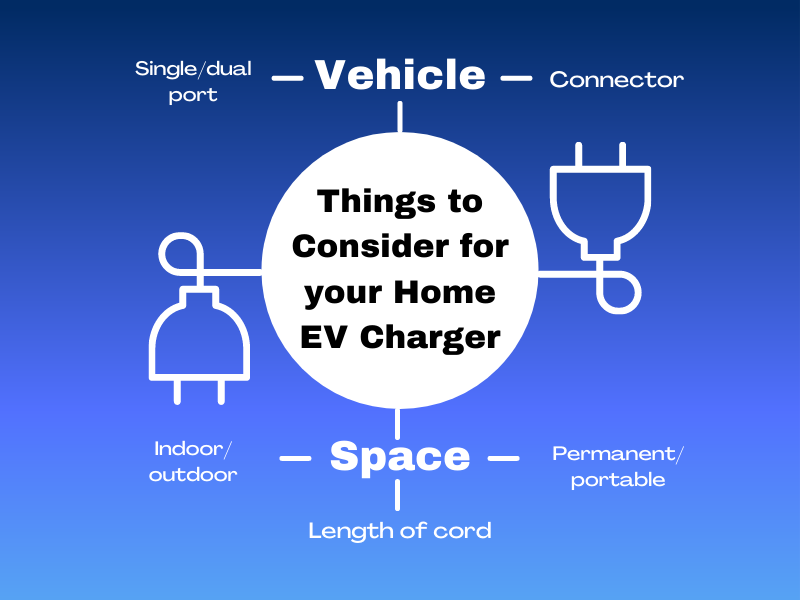
Attributes linked to your vehicle
Single/dual port
- If you have multiple electric vehicles, you might consider a charging station that is designed for multi-EV use in common areas, as it features two plugs that can be used simultaneously
Connector
- Most EVs have the “J plug” (J1772), which is used for home and level 2 charging
- For fast charging, there are two plugs:
- The “CCS,” which is used by most manufacturers (including BMW, General Motors, and Volkswagen)
- The “CHAdeMO,” which is used by Mitsubishi and Nissan
- Tesla has a proprietary plug but can use the “J plug” or “CHAdeMO” as long as you have adapters
Attributes linked to your space
Indoor/outdoor
- A lot of chargers are designed to function both inside and outside, but not all are!
- If you plan on installing your charging station outside, make sure you choose a model that is manufactured to withstand rain, snow, and cold temperatures
Length of cord
- The most common cord lengths are 5 meters (16 feet) and 7.6 meters (25 feet), but there is a range of lengths available to you according to your space and preferences
- The shorter the cable, the easier it is to store
- The longer the cable, the more flexibility you have in being able to park further away from your charger
Permanent/portable
- Some chargers only need to plug into an outlet, while others are designed to be installed on a wall
BC EV Charger Rebates
To incentivize the switch to electric vehicles, the BC government’s CleanBC Go Electric program offers residents, businesses, non-profit organizations, and local government organizations rebates on EV chargers. This program is funded by the Government of BC and administered by Fortis BC and BC Hydro. As of April 21, 2021, new funding has been approved by the government, and applications are currently being accepted!
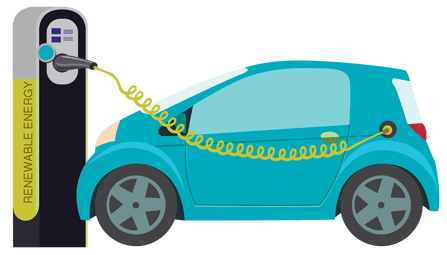
Here is the breakdown of the 3 rebate types available:
| Single-family homes | • Single-family homes can get a rebate of up to 50% of the purchase and installation costs of an eligible Level 2 EV charger to a maximum of $350 • Includes duplexes or townhouses with private garages or dedicated parking |
| Apartment/condominium buildings | • Apartment and condo buildings can get a rebate of up to $1400-$2000 per charger to purchase and install Level 2 networked EV chargers at the building’s residential parking spaces • Note: rebate amounts can vary depending on whether or not the building is already participating in other EV rebates |
| Workplace | • Workplaces can get a rebate of up to $2000 per charger to purchase and install eligible Level 2 networked EV chargers for employee use to a maximum of $14000 |
Other Electrical Considerations for your EV Charger
When preparing to have an EV charger installed, there are firstly some important things to consider. To make the whole undertaking easier for you, you can call a certified electrician to help guide you through the process and answer any questions you may have. They will be able to survey your vehicle and space to ensure that the right charger for you is correctly installed. These are some questions that will need to be considered prior to installing your charger:
- How much amperage will your EV need to charge?
- What is the capacity of your existing electrical service panel (e.g. 100-Amp, 200-Amp)?
- Is there a 240-volt circuit installed and available to be used?
- Is there room in your electrical service panel for a new 240-volt double-pole circuit breaker?
- Where will your charging station be installed?
